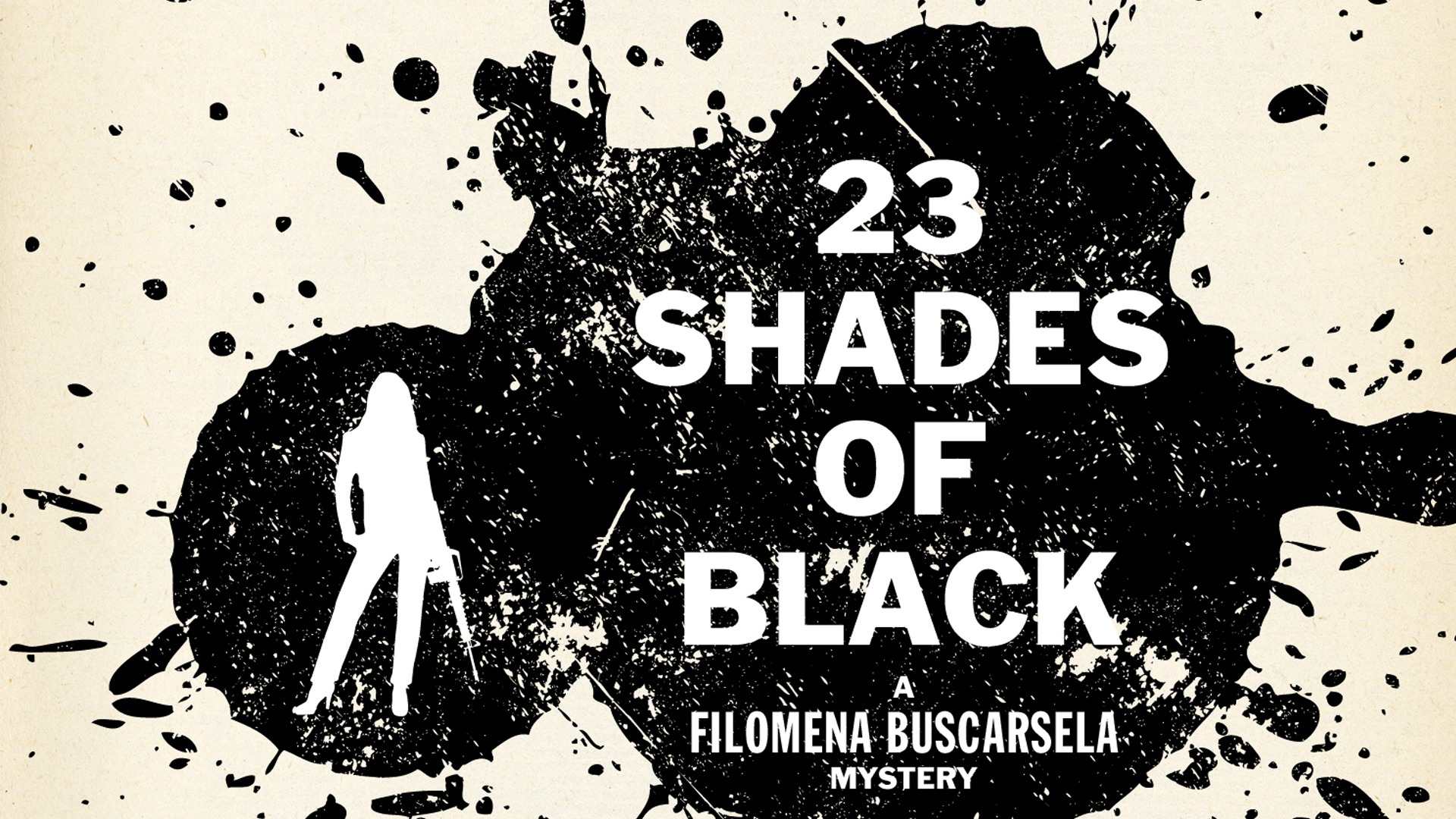Thinking about books
By David Marshall
July 1, 2012
One
of the perks of reviewing is that I get to read the work of many
writers I’ve never heard of. Even at my advanced age, it’s actually fun
to add new “persons of interest” to the Ten Most Wanted posters on my
walls. So imagine my joy in picking up 23 Shades of Black by
Kenneth Wishnia (PM Press, 2012). I read the title verso (doesn’t
everyone) and discover this presumptuous author has included the words
of the Tenth Psalm “Reprinted by permission of God.” This is auspicious
and suggests we share the same world view. The introduction by the
redoubtable Barbara D’Amato fills in the gaps in my knowledge (ask me
about science fiction, fantasy and horror and I’m reasonably
encyclopaedic, but American police procedurals are a relatively new
territory for me). It seems our author grew tired of rejections and
self-published this book in 1997. It was immediately shortlisted for
both the Edgar Allan Poe Award and the Anthony Award. Which just goes to
show that, sometimes, authors are an excellent judge of the quality of
the work they produce and know more than the agents and publishers.
Indeed, within ten pages, I’m hooked and sad that I’ve missed out on the
four books in the series that have followed this.
So what’s so
wonderful about this book? Welcome to the world of Filomena Buscarsela.
Like many heroines in police procedurals, she’s the eternal victim in
the unrelenting world of aggressive sexual harassment. Just as one
example, they send her out on rape patrol to walk the park in the hope
she will lure out a predator male. Two police officers are supposedly
seconds away, ready to rush in to arrest the perp the moment they hear
the attack over the wire she’s carrying. Except all the male officers in
this particular part of New York have been betting on whether she will
defend herself or be raped. This leads to delays in her rescuers’
arrival. Ah, such are the pranks officers play on each other. For all
involved, it’s just one laugh after another.
Mentioning laughs
brings me to the tone of the book. You might think from the rape jape
that this is a dark book whereas it’s actually “funny.” Yes, yes, I know
I’ve been harping on about the hole in my head after the humour
lobotomy, but I really did find passages in this book amusing. There’s a
world-weary wit about the way our first-person heroine describes the
crass awfulness of the world around her. In part, this comes from her
background. She’s arrived in the US from Ecuador having grown up under
the military juntas. We now find her in the 1980s when President Reagan
is the Man in Charge, struggling to overcome discrimination and make it
into the ranks of the detectives. Except, as mentioned, everything that
can go wrong with this ambition does go wrong. This leaves her with a
dilemma. She can either subside with whatever grace she can muster and
live a “quiet life” as the butt of everyone’s jokes. Or she can go out
of her way to investigate cases on her own and break through the glass
ceiling by main force. Fortunately for us, she adopts the latter
strategy and we soon see she would make a phenomenal detective. Except,
of course, it all goes pear-shaped as the fix goes in to curtail her
private investigation before it gets too dangerous for the “men at the
top”. Suddenly, there’s an adverse drug test and questions being asked
about the amount of alcohol she drinks. All these problems might go away
if she would just accept “guidance.”
We have to remember
this is a woman whose family died in Ecuador, who grew up seeing far
worse corruption. Yet she wavers because, one-by-one, all the people who
were supportive seem to lose their enthusiasm. Perhaps the big
corporation she thinks is involved really can buy everyone else off. But
not our Filomena. She’s going to get to the bottom of this even if it
kills her. Which brings me to the ending which is not the usual
feel-good effort that comes in the majority of mainstream books. All
things considered, it feels pleasingly realistic. As a real-world
comparison, Erin Brockovich might have won a settlement from Pacific Gas
and Electric Company but, despite a non-related bankruptcy, it
continues to trade. Fighting a large corporation as a white knight only
rarely slays the corporate dragon and, more often than not, leaves the
person in the can crisped when the flames lick around the armour. So it
is we leave Filomena somewhat the worse for wear after her encounter
with corporate power.
Kudos to PM Press for bringing this back into print. 23 Shades of Black,
a reference to a painting she comes across during the course of her
investigation, is a wonderful read and I unhesitatingly recommend it to
everyone, regardless of their usual genre preferences.
A copy of this book was sent to me for review.






